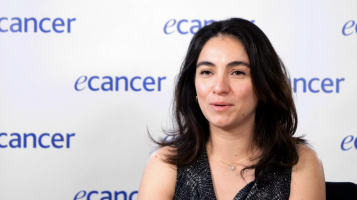Our group at HICOR, which is the Hutchinson Institute for Cancer Outcomes Research, has been interested in this topic of financial toxicity for years. We’ve had a number of studies that we’ve published showing that people with cancer have an increased risk of bankruptcy relative to people without cancer and that in our state the prevalence of financial hardship amongst colon cancer patients is around 40%.
The problem with those studies is that these were retrospective assessments, and not just these studies but other studies as well, is that most studies have been retrospective and cross-sectional. So you’re asking people after the fact whether they had financial hardship during cancer therapy. So that’s prone to some inaccuracies and recall bias. Mainly we don’t have a good understanding of when those financial hardships develop, if they increase over time or if people are coming into diagnosis with baseline financial issues.
So to try and sort out some of those questions we wanted to actually enrol people at the time of diagnosis and measure their financial experiences going forward on a longitudinal basis. Our hypothesis is, of course, that people with cancer face significant financial challenges. I don’t think anyone disputes that based on the data that’s out there but really to try and understand the progression of it and the extent of it in a really uniform cohort of people starting therapy.
What did you find?
We found that among 380 patients that were enrolled, out of the people that completed the follow-up and surveys, that nearly three-quarters of them by the end of a year had experienced significant financial hardship which we defined as either experiencing increasing levels of debt, a decline in their income of 20% or more, refinancing or selling their home or borrowing money through loans or from family or friends.
So the cumulative incidence of financial hardship was extremely high and it gradually increased over time. So the risk at three months was much lower than the risk at twelve months so it shows us that these financial hardships in people with advanced cancer who are undergoing chronic therapy really are progressive and cumulative.
Potential impact of study?
First it shows us that the prevalence, the incidence, is much higher than we previously thought. So it really underscores the importance of trying to look at or trying to talk to patients about financial concerns right at the beginning of diagnosis and measuring alongside any other side effect that you might look at in cancer care how cancer treatment is affecting their finances. So that’s one thing and the next step is really to figure out interventions either at the policy level or at the clinical level to lessen these financial burdens, keep people working if possible, help them successfully obtain financial assistance for medications and other costs, help them plan in advance for the costs that they are going to face.
So to that end we’ve been also working on financial navigation programmes and we’re, through SWOG, going to be opening a study soon that will be a randomised study that measures the impact of financial navigation, which includes counselling and financial assistance on patients’ and caregivers’ financial status and quality of life and other outcomes as well.
Really what we reported in the abstract was simply our very primary analysis but there is a whole host of other things we’re going to really dig into as time goes forward. So number one, we collected credit reports on all of the patients that were enrolled in the study. Going forward we’re going to be correlating what we see in the credit reports with what people are reporting by surveys to see if those two things correlate and also to look at how credit changes over time. Then we also enrolled over 150 caregivers of the patients in this study and we asked these caregivers about how the patient’s diagnosis and the financial experience has affected them in terms of their quality of life and their level of financial distress and worry. So we’re going to be digging into that going forward as well.








